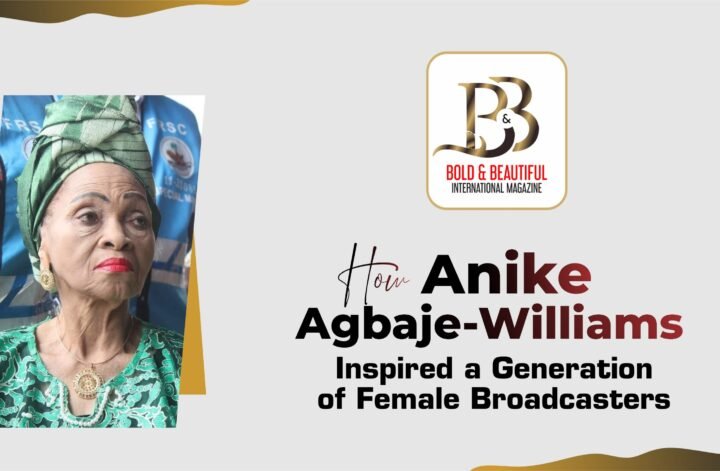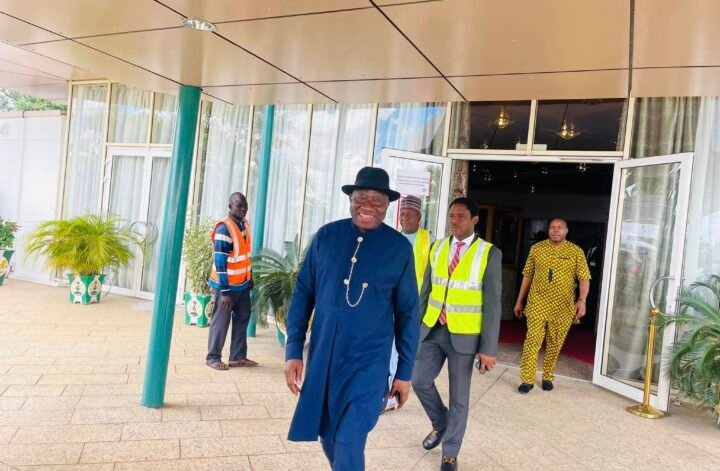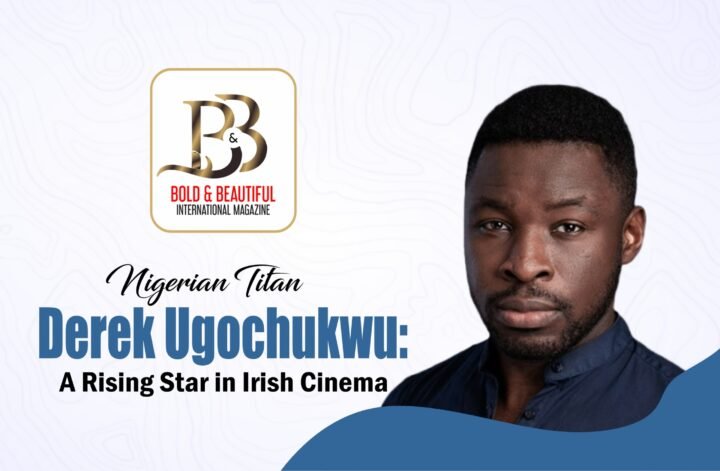Anike Agbaje-Williams, a name carved in the stone of Nigerian broadcasting history, and an inspiration for generations of female broadcasters, was not just a broadcaster, she created a path for many big legends and names making generational waves. Born and raised in Nigeria, in an era when women faced immense barriers in pursuing careers outside of traditional roles, Agbaje-Williams defied societal expectations and paved her own path in the male-dominated broadcasting industry. She became a driving force in the country’s broadcasting industry, leaving a legacy on both the airwaves and the lives of many aspiring female broadcasters. With her wit and charm, Agbaje-Williams inspired a generation of women to pursue their passions in a field traditionally dominated by men.

Agbaje-Williams discovered her love for broadcasting at a young age. Growing up in Nigeria, she was captivated by the power of radio and its ability to connect people from all walks of life. This passion led her to pursue a career in broadcasting, and she embarked on her journey in the late 1950s, a time when opportunities for women in the industry were scarce.
She was born in Abeokuta on October 23, 1936. She grew up in Lagos and attended CMS Girls School. In 1950, when the school moved to Ibadan, she continued her education there. After finishing secondary school, Agbaje-Williams got a job at the Nigerian Broadcasting Corporation in Lagos in 1955. Her career as a newsreader began unexpectedly when a co-worker didn’t show up for work. She was asked to fill in and impressed her supervisor with her voice. This led to her joining the programmes department as a staff announcer.

When a television station was established in Ibadan, Agbaje-Williams was asked to interview and was offered a job there. She became a pioneer staff member of WNTV, the first television station in Nigeria. She made history as the station’s first female broadcaster. Over the years, she worked her way up to become a producer and director of programmes before retiring in 1986.
Breaking into the broadcasting industry as a woman was no easy feat, but Agbaje-Williams was determined to make her mark. She faced numerous challenges and gender biases along the way, constantly having to prove herself in a male-dominated environment. Despite the obstacles, she persevered and rose through the ranks, becoming one of the most influential voices on Nigerian radio.
Agbaje-Williams was a true trailblazer, challenging societal expectations and stereotypes throughout her career. She refused to be limited by gender biases, proving time and time again that women had an important role to play in broadcasting.
In a time when the broadcasting industry was dominated by men, Agbaje-Williams faced numerous gender biases and prejudices. Yet, her talent and dedication allowed her to break through these barriers and earn the respect and admiration of her colleagues and audiences alike. She showed that women could be just as knowledgeable, articulate, and influential as their male counterparts.
Agbaje-Williams was not content to simply conform to societal expectations. She challenged stereotypes and preconceived notions about women in broadcasting by taking on bold and daring roles. Her confidence and charisma on the airwaves shattered stereotypes and paved the way for future generations of female broadcasters to follow their dreams without limitations.
Agbaje-Williams left an enduring legacy in the broadcasting industry, inspiring countless women to pursue careers in this male-dominated field. Her remarkable achievements and tenacity continue to motivate and empower female journalists to break boundaries and make their voices heard.

With her fearless attitude, Agbaje-Williams motivated female journalists to challenge the status quo. She showed them that they had the power to shape narratives, ask tough questions, and make a significant impact in the field of journalism. Her influence continues to empower women to push boundaries and redefine what it means to be a broadcaster.
Agbaje-Williams was not only an inspiration but also a passionate advocate for gender equality in the broadcasting industry. Through her tireless efforts, she fought for equal opportunities for women and advocated for a more inclusive and diverse media landscape.
Agbaje-Williams used her platform and influence to promote equal opportunities for women in the broadcasting industry. She believed that talent knows no gender and worked tirelessly to ensure that women had equal access to training, mentorship, and career advancement opportunities.

Agbaje-Williams recognized the importance of having women in leadership positions within the media industry. She actively advocated for gender parity, pushing for more women to take on decision-making roles and have a say in shaping the future of broadcasting. Her advocacy laid the groundwork for increased representation and diversity in media leadership.



Agbaje-Williams’ impact can be seen in the success stories of female broadcasters who followed in her footsteps. Many talented women have risen to prominence in Nigerian broadcasting, thanks to the inspiration they derived from Agbaje-Williams. Names like Mo Abudu, Funmi Iyanda, and Adesuwa Onyenokwe are just a few examples of broadcasters who were motivated by Agbaje-Williams’ achievements. These women credit her for giving them the confidence and drive to pursue their dreams and make their mark in the industry.
Anike Agbaje-Williams’ impact on the broadcasting industry and her influence on aspiring female broadcasters cannot be overstated. Through her determination, tenacity, and passion, she inspired a generation to pursue their dreams and break through the barriers that held them back.





